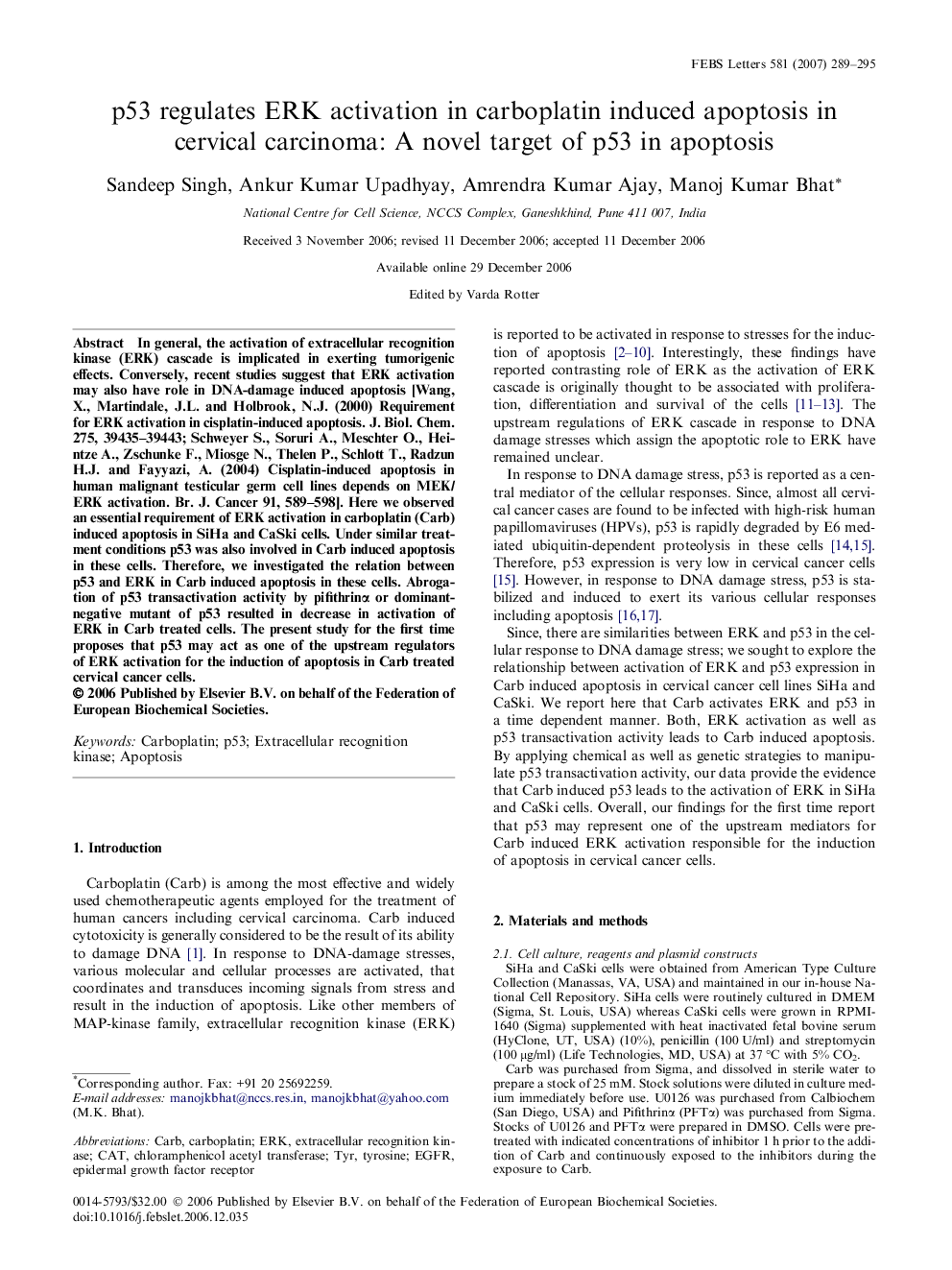| Article ID | Journal | Published Year | Pages | File Type |
|---|---|---|---|---|
| 2051765 | FEBS Letters | 2007 | 7 Pages |
In general, the activation of extracellular recognition kinase (ERK) cascade is implicated in exerting tumorigenic effects. Conversely, recent studies suggest that ERK activation may also have role in DNA-damage induced apoptosis [Wang, X., Martindale, J.L. and Holbrook, N.J. (2000) Requirement for ERK activation in cisplatin-induced apoptosis. J. Biol. Chem. 275, 39435–39443; Schweyer S., Soruri A., Meschter O., Heintze A., Zschunke F., Miosge N., Thelen P., Schlott T., Radzun H.J. and Fayyazi, A. (2004) Cisplatin-induced apoptosis in human malignant testicular germ cell lines depends on MEK/ERK activation. Br. J. Cancer 91, 589–598]. Here we observed an essential requirement of ERK activation in carboplatin (Carb) induced apoptosis in SiHa and CaSki cells. Under similar treatment conditions p53 was also involved in Carb induced apoptosis in these cells. Therefore, we investigated the relation between p53 and ERK in Carb induced apoptosis in these cells. Abrogation of p53 transactivation activity by pifithrinα or dominant-negative mutant of p53 resulted in decrease in activation of ERK in Carb treated cells. The present study for the first time proposes that p53 may act as one of the upstream regulators of ERK activation for the induction of apoptosis in Carb treated cervical cancer cells.
